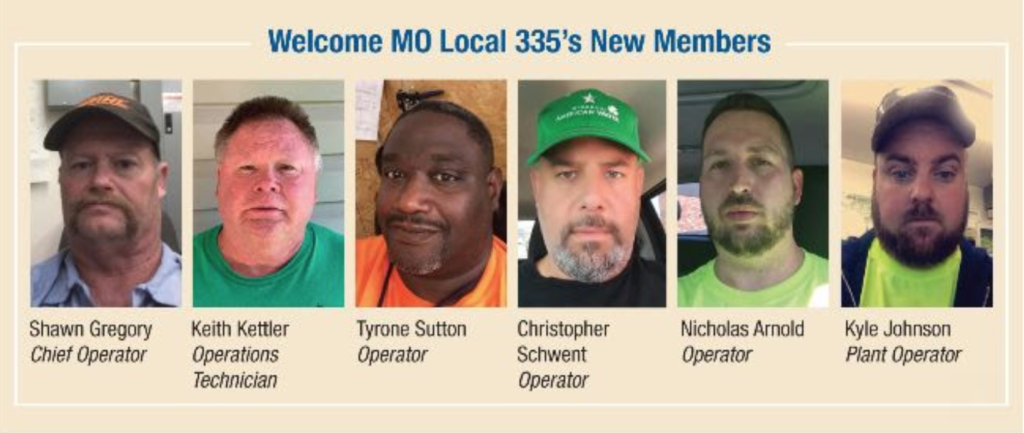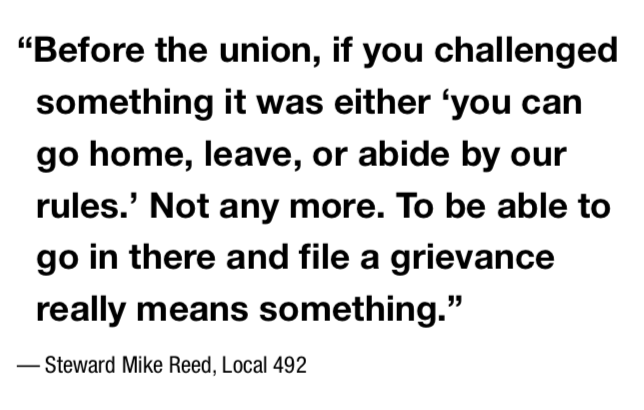Organizing Victories Mount in Water Utilities
The UWUA Organizing Department is successfully expanding its efforts to bring new members into the ranks of the UWUA through organizing campaigns, neutrality/card check agreements, internal organizing drives, and other innovative campaign strategies.

Water and wastewater workers are proving to be an important area of growth for the union. In addition to the 30-plus members who just celebrated their first contract victory in Belmont, OH, American Water’s wastewater workers in Arnold, MO voted to join the UWUA on May 13. They will become part of St. Louis, MO Local 335.
“We are on a roll here,” says Local 335 President Allan Bathon. “When water workers know what we’ve been able to achieve through collective bargaining, they want to join the union.”
Inaugural Contract for Belmont County Water and Sewer Delivers New Benefits
Workers at the Belmont County Water and Sewer District in Ohio recently signed their first contract, securing new benefits, including guaranteed raises, a grievance procedure, on-call pay, and more.
Although the County resisted every step of the way, the workers persevered.
Because the new members are public sector workers, the County was able to drag out the process for almost two years, eventually taking their case to a fact-finder who decided in favor of the union.
In the end, “We got a lot of things straightened out that needed to get straightened out,” says Steward Mike Reed who was also on the Negotiating Committee.
“One of the biggest things we got was on-call pay,” he explains. “For example, before, when you took a truck home, you had to respond in a half-hour to get to the job site if something happened. We weren’t getting paid for that. You would miss family events, your kids’ games. Now the guys are getting paid for being on-call.”
Belmont County workers are now part of Local 492, which also represents American Electric Power workers at the nearby Mitchell Plant.
The three-year contract includes guaranteed raises. “We hadn’t had a true raise in four years and that was the second time that happened,” Reed says. “We now have something set in stone to guarantee that we are going to get raises.”
They also won a grievance procedure for the first time. “This is very important because management here never had to deal with the process like that before. Now we are able to challenge managers. Before the union, if you challenged something it was either ‘you can go home, leave, or abide by our rules.’ Management was making rules on the fly and could do whatever they wanted to. Not any more. Now there’s a set of rules that management has to abide by. To be able to go in there and file a grievance really means something,” he says.

